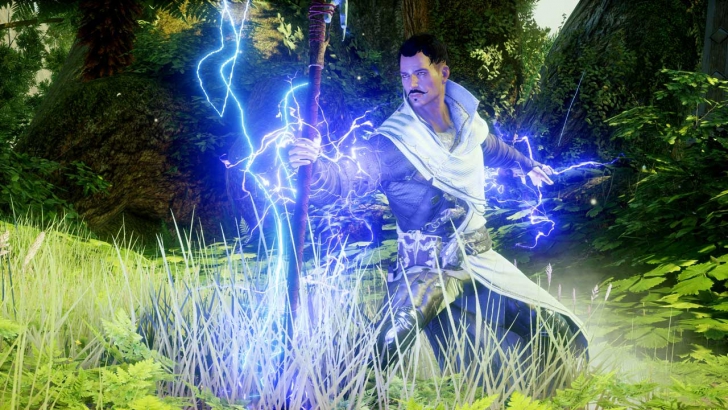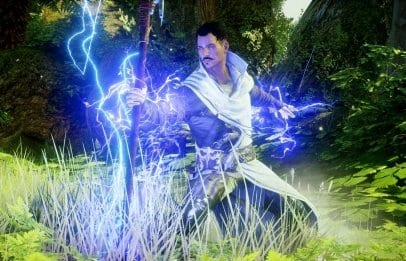
Video game developer BioWare’s upcoming title Dragon Age: Inquisition sees the introduction of the company’s first “fully gay” character . . . only it’s a little more complicated than that.
Previous games in the Dragon Age series featured a romance system often lauded by dedicated fans, especially for the inclusion of same-sex options for both male and female protagonists.
A couple of weeks ago, BioWare released an interview with lead Inquistion writer David Gaider where, while exploring the character, he explained that Dorian is “the first fully gay character I’ve had the opportunity to write.”
Cue the typical response to these sorts of things of everyone losing their mind in one way or another. As someone who greatly enjoyed Dragon Age: Origins for reasons including, but not limited to, the same-sex romance options, my problem with the announcement is a semantic one. There is no “gay” in Thedas, the world of Dragon Age. Same-sex relationships, absolutely. Gay people, no.
Does that distinction matter? I would say yes, and I think Gaider would agree with me.
Sexuality, whether real or in a fictional setting, is more complex than the strange creatures on the mystical world of Planet Earth want it to be. In another article originally posted on his blog, Gaider explains his history and reasoning, as a developer who likes to make sure there are diverse and dynamic relationships in games beyond “man plus woman”:
“I’ve said many times before that no single game can be everything to everyone, and that’s absolutely true. The opportunities we get to include stuff like this, even if they’re few and, yes, even if it’s just in a game and thus not the most important arena for effecting change, are very gratifying to me as a developer — and, I think, for the developers with whom I work.”
He goes on to describe how, in his experience, “there are people out there for whom the presence of any gay content will automatically render it ‘the gay game,’” an experience we see artists and professionals grappling with time and time again. Do you want to explore gay with a capital “G” relationships and people in the work that you do? Or do you want to explore relationships and people? You know . . . the normal ones . . .
This approach fails to acknowledge that sexuality, whether the heterosexual variety or otherwise, is a complicated, ever-evolving construction that changes from instant to instant. Our understanding of “gay” at this moment would be alien a hundred years ago, or a hundred years in the future, or even right now, elsewhere in the world; just like it would be alien in Thedas. What we see, especially in gaming and other fictions, is how well people respond to seeing little bits of their own complicated selves in the characters.
As Gaider notes, “It may not be much, but it’s not nothing, and people tell us all the time it’s not nothing.”
Tackling queer and trans representation in any kind of media shouldn’t be about a cut-and-dry, check-off-the-box, L, G, B and T inclusion approach, as even people in the queer and trans camp want it to be. Instead, we should be working against being compartmentalized in the media we’re a part of, and ever encourage our stories to be told better with complexity and artfulness.
Like Gaider explores in his blog, what I’m saying is that whether mages or video game developers, we’re already a bit beyond “fully gay.”


 Why you can trust Xtra
Why you can trust Xtra


